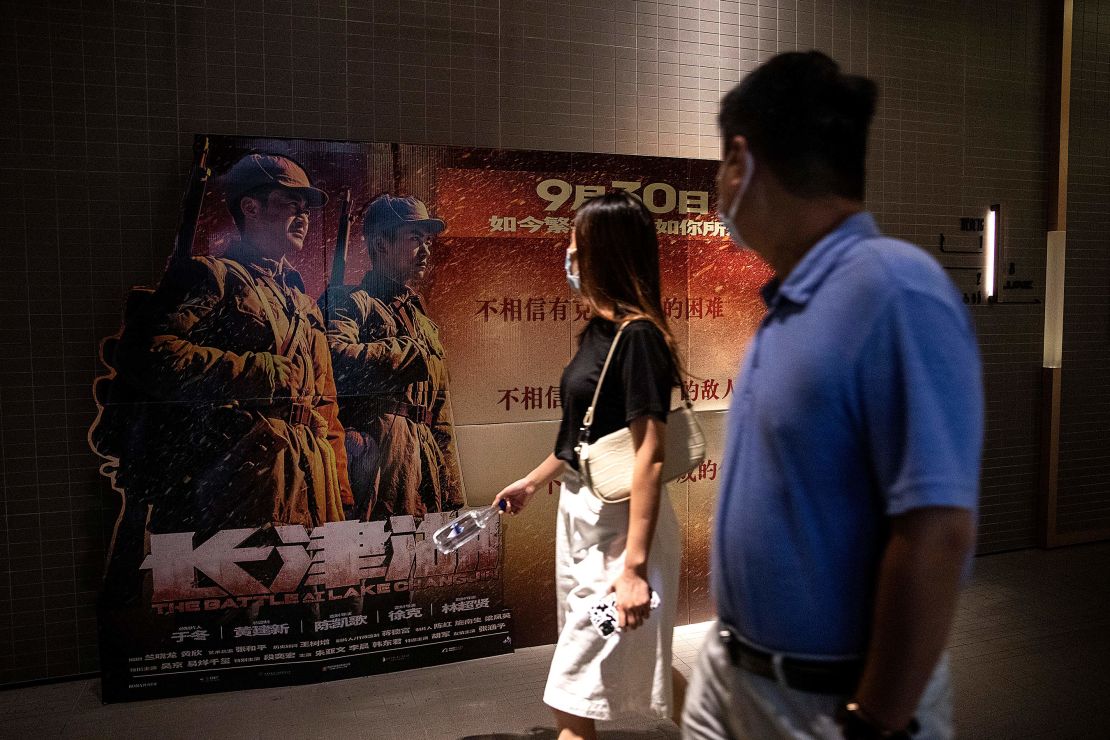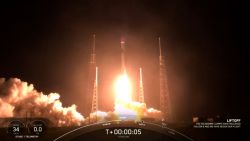A film glorifying the heroism of Chinese soldiers fighting American troops during the Korean War smashed box office records for China’s National Day holiday.
“The Battle at Lake Changjin” — commissioned by the Chinese government —hasgrossed an estimated 1.85 billion yuan ($287 million) since its release on Thursday, according to ticketing app Maoyan. It beat the previous record for the same Chinese holiday set by “My People, My Country,” which grossed more than 1.5 billion yuan ($233 million) over five days in 2019.

“The Battle at Lake Changjin” was released at the start of the week-long holiday in China and was also timed to celebrate the 100th anniversary of the founding of the ruling Communist Party.
It tells the story of the brutal 1950 Battle of Chosin Reservoir in the Korean War. The Chinese side claims it as the most critical victory of the conflict, known in China as the “War to Resist American Aggression and Aid Korea.”
Co-directed by top Chinese and Hong Kong filmmakers Chen Kaige, Tsui Hark and Dante Lam, the film casts Wu Jing in a lead role. One of China’s most popular actors, Wu is best known for starring in and directing action flick “Wolf Warrior” in 2015 and its even more popular sequel in 2017.
“The Battle at Lake Changjin” was commissioned by the Chinese government’s powerful central propaganda department and the country’s top movie regulator. It received hugesupport from the government from script development, production and publicity, to using serving soldiers among the movie’s 70,000 extras.
It was produced by a group of major studios, led by Bona Film Group and the Chinese military-owned August First Film Studio.
It is the “most expensive film” made in China, Bona Film’s chairman Yu Dong told media at its premiere last month. The Hollywood Reporter previously reported the movie had a budget of 1.3 billion yuan ($200 million).
Yu said that he was inspired by patriotic Korean war films when he grew up, and wanted to make anew one“for the young people today,” according to the state-owned National Business Daily.
Beijing has ordered China’s cinemas to use the box office this year to spread propaganda celebrating the anniversary of the Communist Party. Movies will have to focus on themes of “loving the Party, the country, and socialism” and “singing the praises of the Chinese Communist Party, the motherland, the people, and its heroes,” the China Film Administration said earlier this year, explaining its goal.
Many of the movies screened so far are old propaganda that were popular during the time of Mao Zedong, who led Communist China from its founding in 1949 until his death in 1976. They highlight themes of patriotism and were specifically created to educate viewers about the history of the Party.
The movie regulator emphasized a desire for “young people” to “grow their affections” of the Party and socialism by watching the movies.
For the “The Battle at Lake Changjin,” Yu said he wants “young audience today to like it, as well as the young audience 50 years from now,”
Dengta, a box office data app owned by Alibaba (BABA), forecast the film will pull in as much as 4.5 billion yuan ($700 million). That could make it the second biggest movie globally this year, behind the $822 million earned by Chinese comedy “Hi, Mom,” according to data compiled by Box Office Mojo.
In 2020, China overtook the United States to become the top movie market in the world — a milestone achieved in large part because the United States struggled to contain the coronavirus pandemic. As a result, many of the biggest box office drawsin the last few months were produced by Chinese studios and production companies, including last year’s top film, the Chinese war epic “The Eight Hundred.”



























